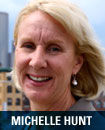Consolidating transient and group travel for better
negotiating leverage and improved data often proves a winning procurement
strategy, but DHL Global Business Services travel services manager Michelle
Hunt took it a step further: She found a way to consolidate group travel from
the moment of the first booking.
DHL's meetings program is sizable—last year it sourced more
than 400—but only recently were events consolidated under the travel
organization, Hunt said. As she sought to bring those under control, she wanted
to make meetings bookings as user-friendly as transient travel bookings.
"People have tried to separate groups and meetings from
transient for a long time, but do you really have to go through a different
site to have that tracked?" Hunt asked. "We looked at it from the
simplicity standpoint."
 DHL already had strong online adoption levels: About 90
percent of U.S. travel reservations originated online, as did about 70 percent
of international reservations. Like many companies, however, hotel compliance
lagged. In 2010, about 38 percent of hotels were booked via the designated
agency.
DHL already had strong online adoption levels: About 90
percent of U.S. travel reservations originated online, as did about 70 percent
of international reservations. Like many companies, however, hotel compliance
lagged. In 2010, about 38 percent of hotels were booked via the designated
agency.
Hunt and her team realized that meetings were the top reason
for the relatively low hotel compliance level. As a remedy, she went to hotel
chains and requested that they load meeting rates directly into global
distribution systems so travelers could book their hotels for meetings through
the same portal they use for transient travel.
Now, once a DHL event is sourced, negotiated and contracted,
hotels load rates for that event into the relevant GDS with a separate rate
code. At the same time, DHL's travel management company receives that group
name to load as the reason for travel, identifies the host hotel as preferred
and adds comments explaining which event it is hosting. When attendees are
invited, they are instructed to book via the online tool and to choose the
designated reason for travel.
"The code might be 'Americas conference' or 'year-beginning
meeting,' " Hunt said. "This way, it all goes through one site, and
if the hotel was not already preferred, it will be preferred for the meeting
dates."
Meeting coordinators or other designated personnel also can
book online for guests or associates outside of the United States, she added.
The TMC sends the data to International SOS for security
tracking purposes. Once an event is over, the meeting name is removed as a
travel reason and the hotel no longer is designated as preferred. DHL also has
the option to designate a master account or cost center to the travel reason so
that all booked airfares via that code are billed directly to that cost center.
About the only manual responsibility left to event
administrators is sending a rooming list of traveler names to the hotel so they
can confirm the block, Hunt said. Should they want to check which travelers
have booked for the meeting, they can request a report from the TMC.
Event contracts provide for situations when rates are not
loaded properly. "If the hotel has a different rate than what was
negotiated, they should book it anyhow," Hunt said. "It will be
adjusted on the back end."
When she began testing the idea in 2011, hotel booking
compliance increased to 53 percent, about the industry standard, Hunt said. By
the first quarter of this year, 76.5 percent of hotel bookings went through the
agency.
Hunt first worked with Starwood Hotels and Resorts Worldwide
to pilot the project and used that experience to set up similar systems with
most other major chains, including some outside of North America.
"With Starwood, we really worked through it, tested it,
and they put resources toward getting the right folks involved," she said.
"After that, we knew the lingo, and most the key account managers said, 'No
problem.' "
One large chain did not comply, Hunt said, but after
informing one hotel in that chain with which DHL had done business that it
could affect its ability to win future events, the property agreed to a
work-around. Travelers can book at that hotel through the online tool at
whatever rate is available, and the hotel on the back end will adjust rates as
needed.
The process also has made it easier on travelers during and
after travel for meetings, which was part of the goal, she said. Travelers'
loyalty program details already are on file, cutting down on their time at
check-in, and their hotel folio automatically is imported into DHL's expense
tool when they book online, making simpler their expense reporting process.
"In our program, we want travelers to focus on their
jobs, not spend time on the peripherals," Hunt said. "This also has
taken the manual responsibility off the administrator and the hotel, so we see
cost savings from that. It's been a great success."
This report
originally appeared in the Aug. 20, 2012, issue of Business Travel News.